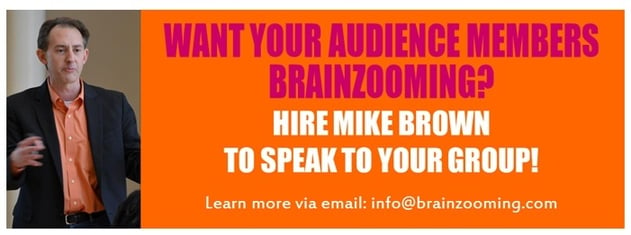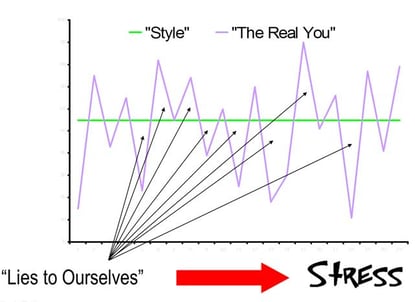It’s time for a strategic thinking rant.
Who screwed up the thinking of so many business people who believe making strong, tough decisions on cutting costs and saving their companies from closing, ISN'T strategic?
I'd like to meet the person responsible for messing up so many business people's minds and set the person straight.
What Is Strategic and What Isn't?
We covered this point last fall after a keynote presentation I delivered on Creating Strategic Impact. Last week, at the 10th annual CFMA annual Heartland Conference, the same point came up again during Q&A. Interestingly, both groups were comprised of financial leaders, but I don't think that's the issue.
So what is the origin of this mistaken belief about what's strategic and what isn't strategic?
I think it related to the mistaken thinking that "strategic" only pertains to:
- Long-term issues, so anything addressing immediate survival isn't strategic
- Growth, so cost-cutting isn't strategic
- Innovation, so focusing and reducing what an organization does isn't strategic
- Operational and P&L issues, so when Finance takes the lead the business issues must not be strategic
- Periods where a company has the flexibility to pursue new initiatives, so belt-tightening isn't strategic
- Situations where everyone is upbeat about a company's prospects, so the dark days couldn't be filled with strategic issues
Those are just six possibilities that come to mind.
All of these beliefs are incorrect.
As we tell clients and “Creating Strategic Impact” workshop participants, what determines what is strategic is whether it matters to the organization’s success and demands being addressed with insight and innovation.
And what matters for an organization can pertain to a variety of areas, including an organization’s core purpose, values, vision, brand, key audiences, ability to satisfy customers, financial prospects, resource / raw material supplies, structure, or alignment.
Now, applying our standard for what's strategic to the six mistaken strategic beliefs highlighted earlier, all of these are strategic:
- Immediate decisions and implementation efforts to strengthen the brand and its performance
- Vital cost-cutting efforts
- Periods where an organization is having to make critical consolidation moves
- Times when a staff area in the organization is best positioned to step up and lead change
- Periods where a company has few options, requiring it be stellar in deciding and implementing
- Situations where the future appears darkest and smart, dramatic decisions are vital
Now, don't all of those seem like massively strategic situations?
You bet they do!
Creating Strategic Impact
If you feel as if your organization hasn't been strategic the past few years, take a look back through our strategic lens. See if you don't feel differently about what you've been facing and what fundamentals you've had to address.
If you've been fighting for survival, have made it through, and feel as if you're ready to move form surviving to thriving, I'll pretty much guarantee you've been strategic.
So cut yourself a break, and tell anyone who doesn't think you're on top of strategy to pound sand.
End of strategic thinking rant – for now! – Mike Brown




